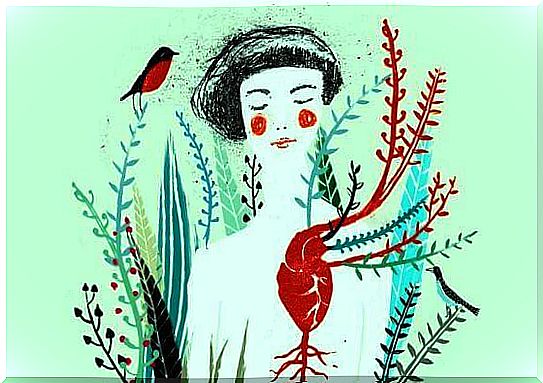The Therapeutic Strategy That Converts Anger Into Compassion

Anger is an emotion that could be considered poisonous and that arises from the perception of threat and danger. Its duty, in evolution, is to motivate us to fight against what can harm us and even damage our life. But, like all emotions, well regulated, it contains a large amount of energy that we can use in our favor.
It is usually manifested by tension in the jaw muscles, rapid heartbeat, sweating and especially a deep feeling of injustice or that we are being taken advantage of in one way or another.
Thus, anger arises in a context of vulnerability. It is a feeling that is felt only by those who are suffering or who are afraid, and who do not think they have the resources to face what must or can happen.
Usually, when we meet someone full of rage, we judge them negatively, we lift a defensive barrier, and we confront them. This behavior shows that we fully understand the destructive power of this emotion. We know that in addition to receiving the damage caused by this rage, it can be passed on to us and we can enter a negative spiral in our relationship with one another.
Whether it is with a client, a sibling, our spouse, anger is one of the emotions that most tests our ability to regulate our emotions. It is very easy, in this situation, for any gesture or “stupidity” to increase its intensity. We end up losing control and throwing all our despair on the person who deserves it the least.
Is feeling angry worth it?
The answer is no. Anger does not solve any problem, at least one that requires a quick solution to the threat and the danger of death. If it did, anger would take a tremendous amount of energy to react quickly and forcefully to this threat.

But is it possible that something like this is happening to us? Today we feel angry because we demand that everything work the way we want it to: with the people around us and in our own lives. But it is an illusion that will never happen. We can thus say that in the majority of the situations in which we feel anger, there is no great danger for us. It is our mind that disguises small threats as giants.
We have unrealistic expectations of others, or we expect too much luck to be on our side. So when we see that our expectations are not being fulfilled, we fall into frustration and this leads us to feel rage.
Know that this inner rage puts all your resources into action and makes you act against the problem, but that this problem is not a problem in itself: it is life, reality and against all this, there are strategies much smarter. No one can “demand” change what has happened, is happening or will happen.
As we said before, when we see someone upset, we also tend to defend ourselves. A defense that often involves bringing out our own anger on the assumption that “this person shouldn’t… .”
One requirement leads to another requirement and so, until both opponents tire and end their argument. So it is not worth it to feel anger towards someone who behaves badly with us.
Change anger into understanding and compassion
Compassion is a great vaccine against the damage we suffer when we are exposed to the anger of others. If we think that the angry person is not conscious and that he acts under the influence of the emotion which invades him, it will be easier to control our anger and even to intervene to calm it.
If one thinks this way, leaving aside the absolutist demands, it will be impossible to feel rage for this person. Contrary to popular belief, if we are able to change our thoughts, we will feel compassion for that person.
We could say that then we put ourselves in her shoes, that we exercise our empathy and that we understand that she is using a defense mechanism because she thinks she is in danger.

Obviously, to be able to succeed in thinking like this, you have to rely on good reserves of self-esteem – not ego – and of course be sure of yourself. This is the only way not to feel threatened, to put aside your pride and to act with love towards people who want to hurt us or who do it without bad intentions.
You probably think this is a conformist attitude and that no one wants to be walked on. Maybe you are right, but only in part. Assertiveness, this ability to set limits and express our rights without harming others is the option we can choose when someone makes us suffer. Know that assertiveness is an action guided by our conscience and thanks to which we safeguard our integrity without hurting the other. Nothing to do with a disproportionate or instinctive reaction.
So, when you sense rage around you, try to transform that information beyond the defensive stance you spontaneously want to take. If you see that it is beyond you, you better get out of the situation before it takes over you. Several people who act in measuring the consequences of their actions results in an explosion which can do a lot of harm.
In conclusion, know that there is a clear difference between acting out of anger and not acting. We refer in particular to situations of mistreatment. Even if the abuser acts under the influence of anger and as a victim, we can understand it, we are obliged to denounce him out of respect for ourselves and for all the people who could become his potential victims. And even for him, so that he can receive help.
Know that understanding has a wonderful power, but that it should never be a hindrance to act firmly when our life is in danger. This is where anger can give us that extra courage and energy we need to go to the police station and file a complaint.
Also read:









